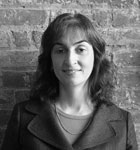What’s the biggest challenge facing the green movement right now?

Sandra Leibowitz: In America we have a different understanding of what is acceptable as far as waste, and we don’t notice a problem until it’s really, really big. I get concerned about the growing opportunities for greenwashing. LEED was created to limit that because you have to have third-party verification. I think the recession did a little bit of backtracking with that, where everybody and their brother-in-law was suddenly a green “expert” because they wanted that market distinction. It’s really important that the professionals remain serious.

Jim Weiner: I think in order to broker successful solutions, you have to appreciate a community’s essential values. You have to find diverse participants, even the people who don’t realize they’re stakeholders. Their values are going to be an activating force. There are two kinds of forces: restraining forces and activating forces. Compromise is an example of the first, and reconciliation is an example of the second. Compromising is losing. What you’re always striving for is a sense of the win-win. But in order to get your rudder in the water, you have to be able to articulate those values.
That seems easy to say, hard to do.
Weiner: Oh, of course. There’s a titanic shift in how cultures are expressing value. Take the Occupy movement. It’s all about that shift. What do we value? And how do we allocate our resources? There’s a lot of fear that has to be shed in order for decisions to be made. Right now that fear is about our financial sector—and that often results in poor short-term decisions about what’s of value.
What’s going on in the industry that excites you?
Weiner: For me it’s the harmonization of building codes internationally. We’re having an open dialogue about how efficiency is accomplished cross culturally. This way, we have the benefit of looking over intelligence from different cultures. For example, in Copenhagen, we find it’s a walkable city; they use bicycles; all of the buildings are related—it’s a livable place for everybody. It’s not just about the efficiency—it’s about how the systems integrate with each other.
Where’s the industry headed?
Leibowitz: There’s a lot of interest in net-zero buildings. There are programs in Europe that are really pushing the envelope. It’s more fun to solve problems in innovative ways, and I think seeing how little energy you can use and making it almost a competitive thing would be a good step. We do very well with competition in this country, and for homeowners to be going head-to-head with each other could be very interesting. In the future, there could be “energy teams” in different neighborhoods that compete month to month. Basically, there are ways to motivate people to change their behaviors and, ultimately, the building industry itself.
Read more about Jim Weiner, Sandra Leibowitz, and the LEED Fellow distinction here.

